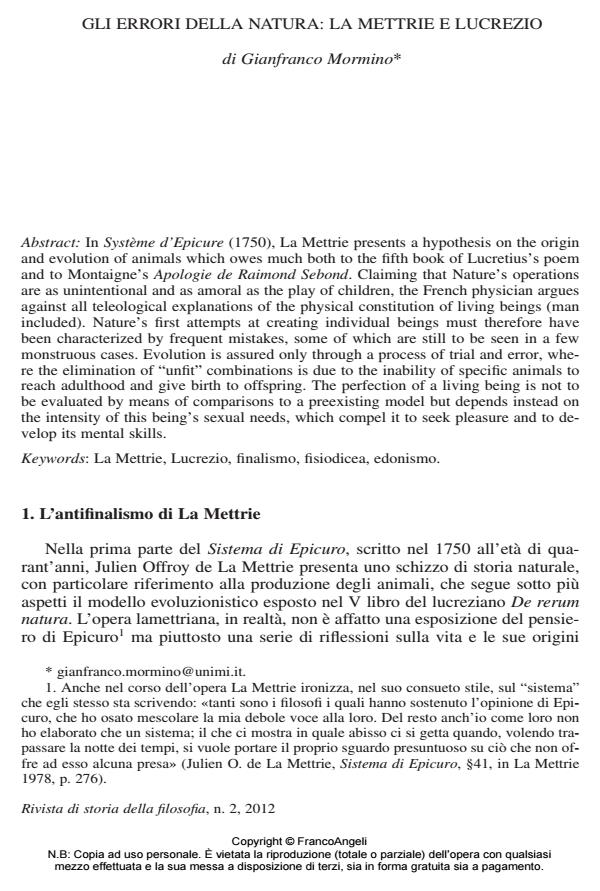Gli errori della natura: la mettrie e lucrezio
Journal title RIVISTA DI STORIA DELLA FILOSOFIA
Author/s Gianfranco Mormino
Publishing Year 2012 Issue 2012/2 Language Italian
Pages 12 P. File size 476 KB
DOI 10.3280/SF2012-002003
DOI is like a bar code for intellectual property: to have more infomation
click here
Below, you can see the article first page
If you want to buy this article in PDF format, you can do it, following the instructions to buy download credits

FrancoAngeli is member of Publishers International Linking Association, Inc (PILA), a not-for-profit association which run the CrossRef service enabling links to and from online scholarly content.
In Système d’Epicure (1750), La Mettrie presents a hypothesis on the origin and evolution of animals which owes much both to the fifth book of Lucretius’s poem and to Montaigne’s Apologie de Raimond Sebond. Claiming that Nature’s operations are as unintentional and as amoral as the play of children, the French physician argues against all teleological explanations of the physical constitution of living beings (man included). Nature’s first attempts at creating individual beings must therefore have been characterized by frequent mistakes, some of which are still to be seen in a few monstruous cases. Evolution is assured only through a process of trial and error, where the elimination of "unfit" combinations is due to the inability of specific animals to reach adulthood and give birth to offspring. The perfection of a living being is not to be evaluated by means of comparisons to a preexisting model but depends instead on the intensity of this being’s sexual needs, which compel it to seek pleasure and to develop its mental skills.
Keywords: La Mettrie, Lucrezio, finalismo, fisiodicea, edonismo
Gianfranco Mormino, Gli errori della natura: la mettrie e lucrezio in "RIVISTA DI STORIA DELLA FILOSOFIA" 2/2012, pp , DOI: 10.3280/SF2012-002003